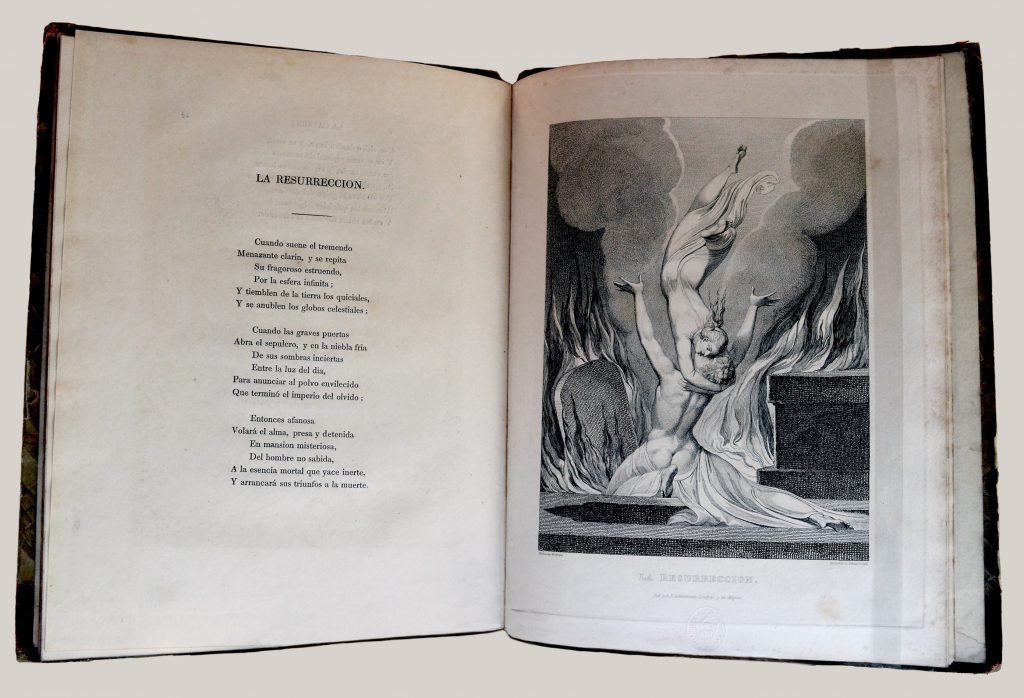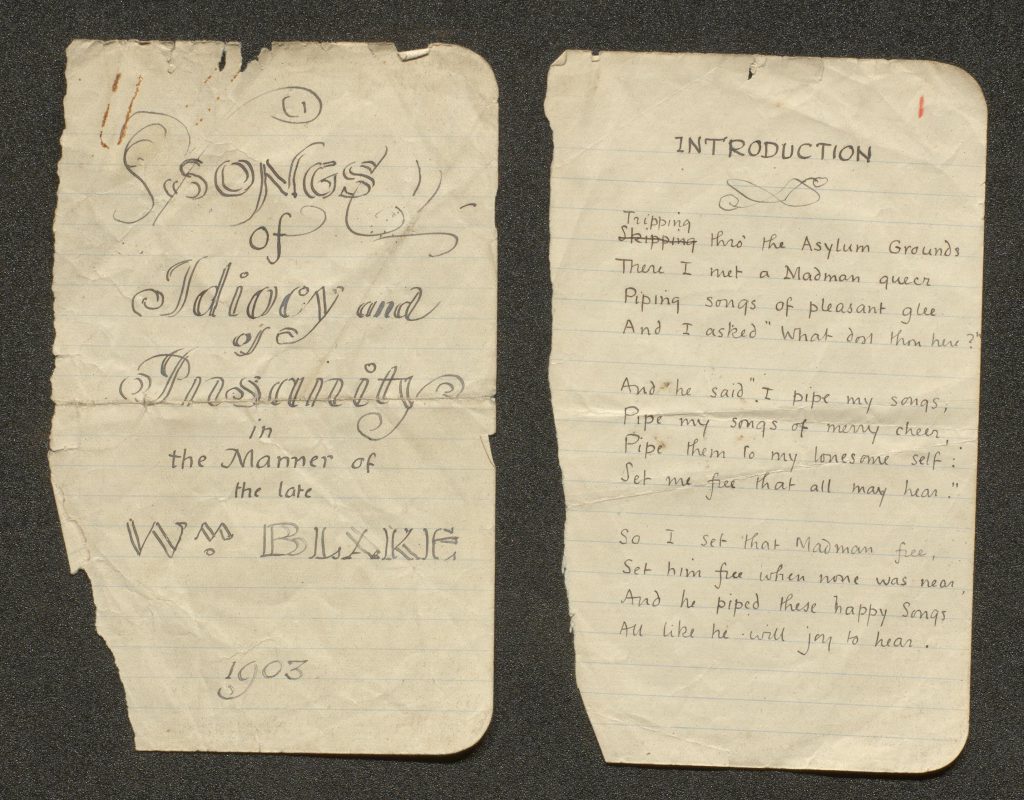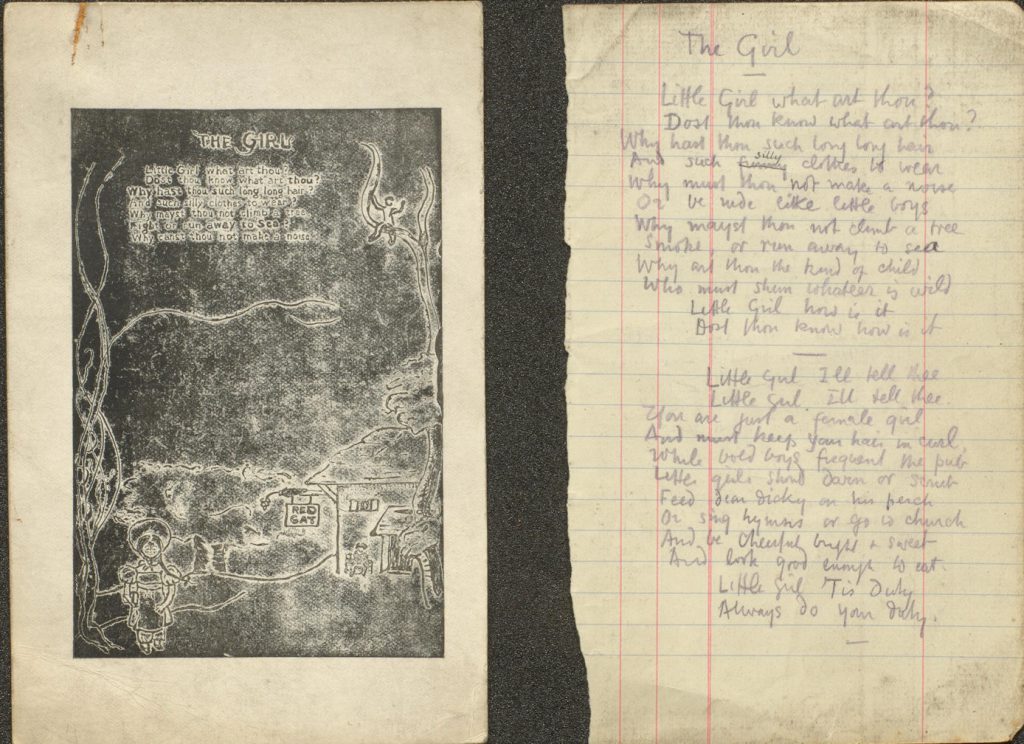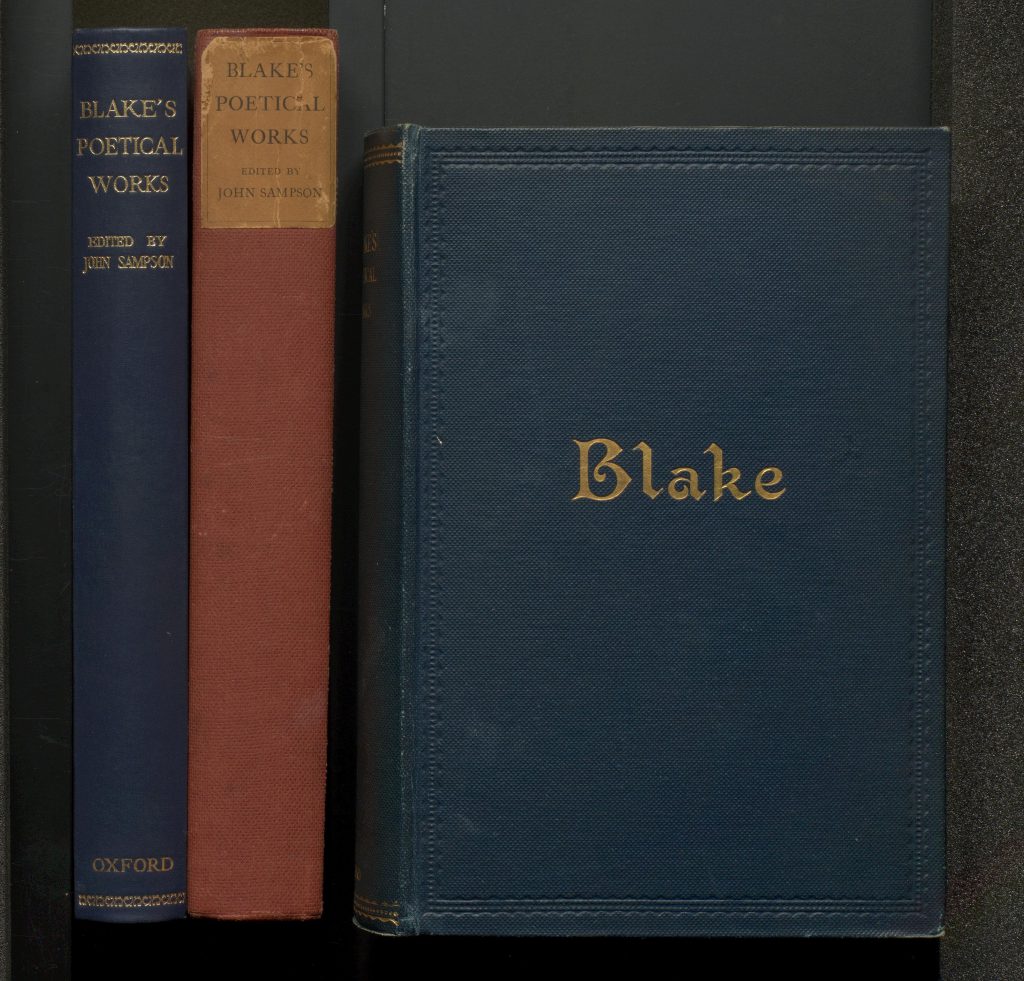The recently opened exhibition at Tate Britain: William Blake: Artist includes Liverpool’s copy of the Meditaciones poéticas by José Joaquin de Mora (1783-1864), the only copy known in a UK library of this work, designed for the South American market.
This 1826 publication was inspired by one of the most famous poems of the 18th century, Robert Blair’s The Grave, and has plates based on illustrations by William Blake originally designed for a extensively promoted subscription edition (1808). Our loan features in the Independence and Despair section of the Tate exhibition, focused on Blake’s illustrations to ‘The Grave’ which came to define his reputation. The book, in the Tate curator’s words, is “a remarkable and unique demonstration of Blake’s penetration of the non-English world.”

Liverpool’s copy (SPEC H9.13) has the University College Liverpool 1881 bookplate, with a presentation note: bequeathed by the Rev. John Hamilton Thom. The work is listed in the 1895 catalogue of Thom’s bequest: In memoriam John Hamilton Thom. List of books bequeathed by the late John Hamilton Thom to the Tate Library of University College, Liverpool with separate index of the books once belonging to the late Rev. Joseph Blanco White.
Thom (1808-1894), a prominent Unitarian minister in Liverpool, was also the executor of Joseph Blanco White (1775-1841). White and Mora were fellow Spanish emigrés, and both worked for the publisher Rudolph Ackermann: the connection probably explains the presence of Mora’s work in Special Collections.
Liverpool University Library was collecting works by William Blake (1757-1827) even before Thom’s bequest of the Meditaciones poéeticas: in 1892 the Liverpool solicitor and MP, A. F. Warr, gave his “delightful and almost complete series of reproductions of William Blake’s works” and the Library purchased the 1826 edition of Blake’s Job.
It is no coincidence that 1892 was also the year John Sampson (1862-1931) became the first full-time librarian at University College (later the University of Liverpool). Sampson was a renowned Blake scholar and in 1906 the Liverpool Courier, reviewing his then definitive critical edition of Blake’s Poetical Works, described the “broadening of public taste” in relation to Blake and of “the prominence of the part Liverpool has played in this essentially modern movement”.
Sampson’s scholarship was complemented by a more light-hearted approach to Blake’s poetry; in addition to a popular edition of a selection of Blake’s poems (1906) he also wrote Blake parodies (SP9/4/1/3), such as ‘Songs of Idiocy and Insanity’ and ‘The Girl’.

Sampson archive SP9/4/1/3

Liverpool University Press published a posthumous collection of Sampson’s work, In Lighter Moments: a book of occasional verse and prose (1934) and the Sampson archive holds drafts for the volume including unpublished work such as “After William Blake but before the new racing regulations.” (SP9/4/2/22).
The William Blake collections continue to be notable for facsimile editions of Blake’s work, including the important Trianon Press series, contemporary editions of works with engravings by Blake, and works on the critical reception of Blake as poet and artist, dating from Alexander Gilchrist’s Life of William Blake (1863), described in the Oxford Dictionary of National Biography as, “arguably the most important work ever published on Blake”.
Sampson’s scholarly contribution to William Blake studies is described by Angus Fraser in the Oxford Dictionary of National Biography as, “the restoration of the text of William Blake’s lyrics, long overlaid and ‘improved’ by editors. In the Poetical Works (1905) he established the definitive text, with much critical and bibliographical apparatus, and in the edition of 1913 included ‘The French Revolution’, never before published, and long selections from the ‘prophetic books’. Partly for his work on Blake, but more for his linguistic studies, he was awarded an honorary DLitt at Oxford in 1909”.
